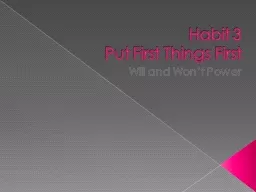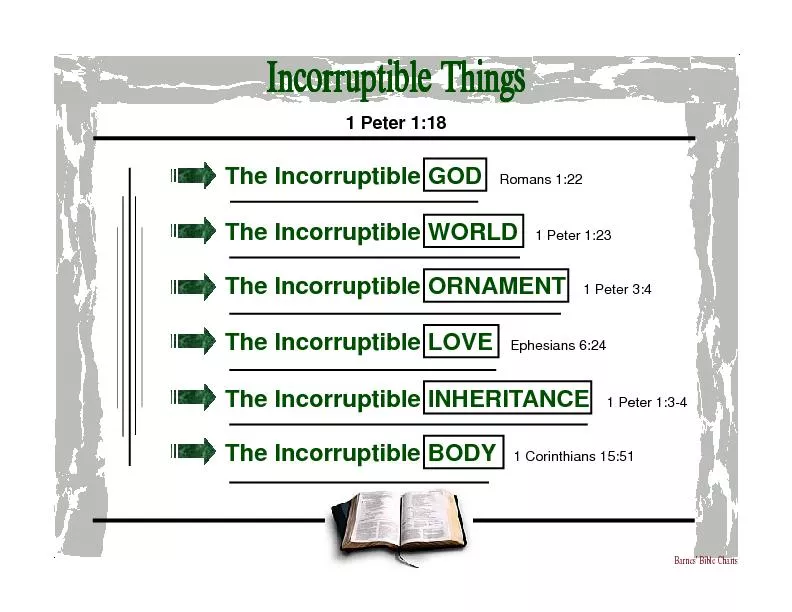PPT-Habit 3 Put First Things First
Author : olivia-moreira | Published Date : 2018-03-15
Will and Wont Power ASCA Standards A A15 Identify attitudes and behaviors that lead to successful learning A A21 Apply timemanagement and taskmanagement skills CA110
Presentation Embed Code
Download Presentation
Download Presentation The PPT/PDF document "Habit 3 Put First Things First" is the property of its rightful owner. Permission is granted to download and print the materials on this website for personal, non-commercial use only, and to display it on your personal computer provided you do not modify the materials and that you retain all copyright notices contained in the materials. By downloading content from our website, you accept the terms of this agreement.
Habit 3 Put First Things First: Transcript
Download Rules Of Document
"Habit 3 Put First Things First"The content belongs to its owner. You may download and print it for personal use, without modification, and keep all copyright notices. By downloading, you agree to these terms.
Related Documents














